Sharing our daughter’s intestinal rehabilitation journey
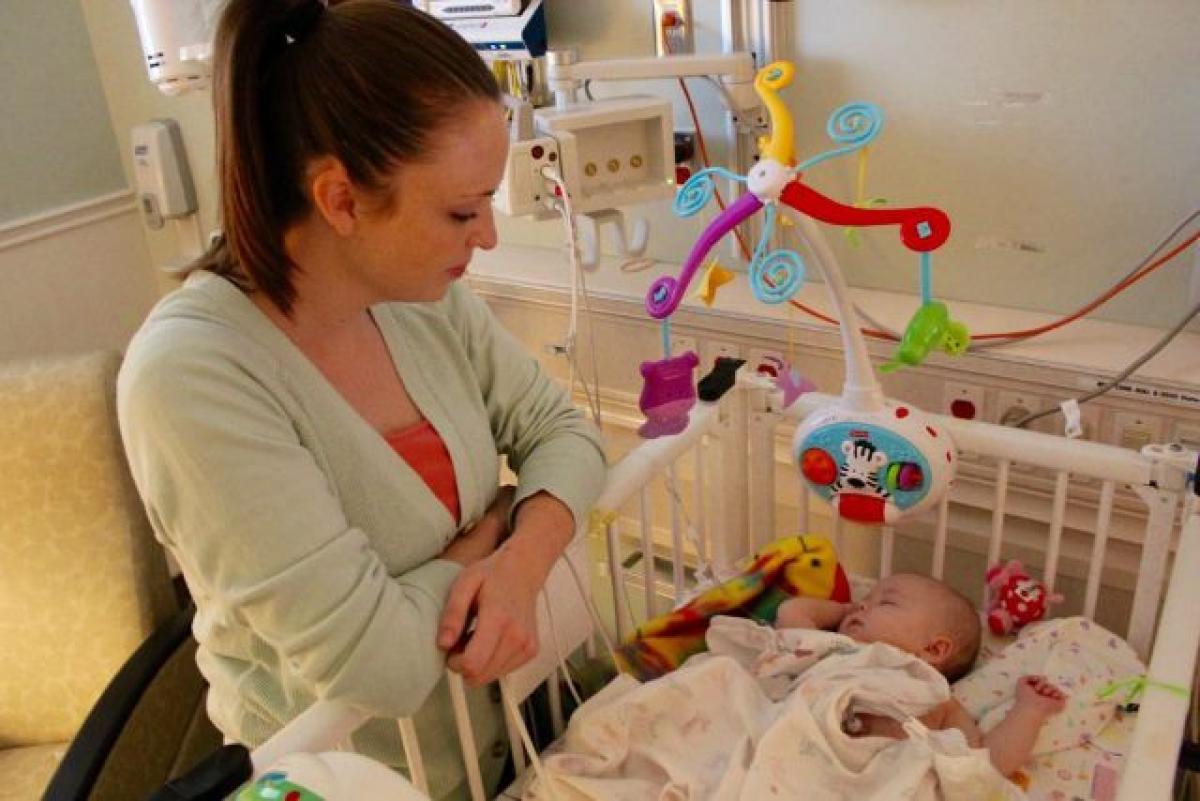
In December 2015, my husband Colby and I were surprised to learn that we’d be expecting our fourth child. We were overwhelmed and overjoyed. Once the initial shock wore off, we knew in our hearts that we would need to move.
We were living far away from family and with four young children, we could certainly use the support only family can offer. To top it off, we lived in a state that consistently ranks in the bottom five for education and health care, not the best place for our children to grow and thrive. We are just now coming to understand the importance and true magic of that decision.
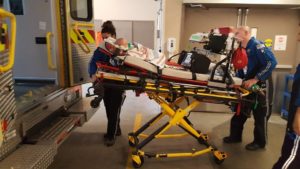
Our family moved to Northern Missouri in June of 2016 – just six weeks before our daughter was expected to arrive. I found a new prenatal provider. My pregnancy was progressing normally and there were no signs of any complications, but at my first appointment the midwife decided to order an ultrasound “just to take a look.” It was then that they discovered our daughter’s intestines were extremely dilated. However, we would have to wait until delivery to know what was going on inside her tummy. Doctors told us it could be a very serious situation requiring emergency surgery – or it could be minor, requiring minimal to no intervention.
On July 25 at 39 weeks and 2 days, Brylie Sue entered the world. It didn’t take long for everyone in the room to realize something wasn’t right. The Neonatal Intensive Care Unit (NICU) nurses quickly whisked Brylie away and had to suction out 147 ml (nearly 5 oz!) of bile from her stomach before she took her first breath. That evening, additional tests were performed which showed she had a complete intestinal blockage.
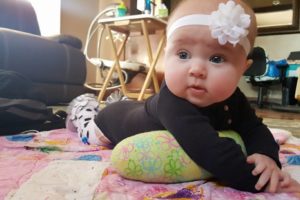
In January, Brylie will undergo a bowel lengthening procedure at Nebraska Medicine.
During surgery the following day, it was discovered that Brylie suffered a midgut volvulus while in utero and much of her small intestine had died off. At less than 24-hours-old, she lost approximately 60 percent of her small intestine, her ileocecal valve and appendix. Also, her colon was much narrower than it should be due to lack of use. A central line was placed so that she could receive intravenous nutrition (TPN) directly into her blood stream. This medical intervention saved Brylie’s life and gave her gut time to heal. At the time, the doctors treating her believed she would do great and have no long term effects from the loss of so much bowel. She was expected to slowly learn to eat and digest her food, then would be discharged. Doctors told us it should only take 2-3 weeks and we could all be home together.
Well, as Brylie is already learning, life doesn’t always go as planned. At six weeks old, she was still unable to digest food and required a second surgery. The surgeon removed another foot of her small intestine and put in an ostomy. With many struggles and setbacks along the way, at three months old, she had her third surgery. Brylie’s ostomy was reconnected and she had a feeding tube put in her belly. We were all hopeful that this would be her last operation and she would finally be able to go home from the NICU. Through it all, she was the happiest little girl and made many friends. She would smile from ear to ear when anyone came to say hello, thus earning her the nickname, Smiley Brylie.
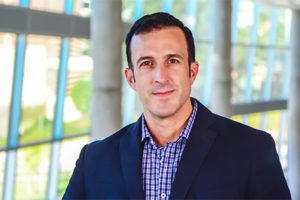
After her third surgery, she really wanted to eat, but her intestines were still unable to pass food through and she started to feel terrible. My husband and I were desperate to do everything we could to get her the best care possible. Through our research, we learned about Nebraska Medicine’s Intestinal Rehabilitation Program (IRP) and Dr. David Mercer. I made one phone call and things were put in motion to get Brylie transferred to Nebraska Medicine’s NICU so that Dr. Mercer and the IRP team could help our daughter.
When we got to Nebraska, Brylie met many new friends and won them over with her smile. A few more tests were performed and it was determined that Brylie will need another operation. However, they want to give her some time to heal from her previous surgeries and to grow and get stronger. After spending the first 123 days of her life in the hospital, she was finally able to go home for the very first time.
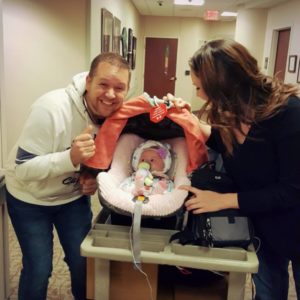
These days, Brylie is still unable to eat and her life is being sustained through the use of TPN – which can be really hard on her liver and place her at high risk for infections. Brylie is closely monitored and will return to Omaha in early January for Dr. Mercer to perform a serial transverse enteroplasty (STEP) procedure, which will lengthen her bowel.
My husband and I would travel anywhere to get Brylie the care she needs, but now we live a short drive from one of the few facilities in the nation that specializes in intestinal failure. The multidisciplinary team will help Brylie down the road to health and digestion. Join us on our daughter’s journey and we will find joy along our way!
To schedule an appointment with Nebraska Medicine’s Intestinal Rehabilitation Program, call 800.922.0000.




